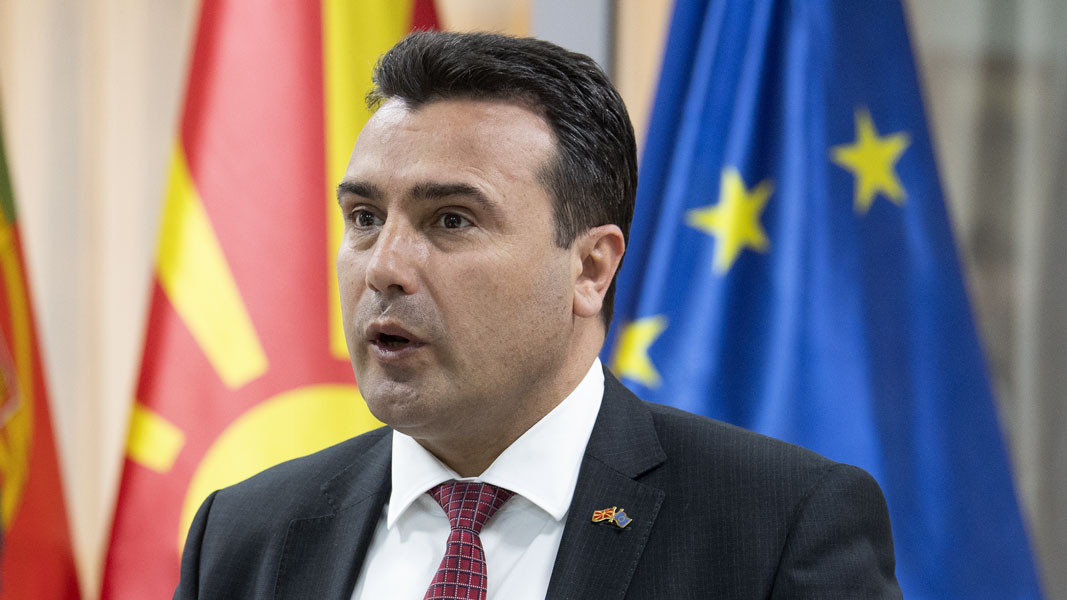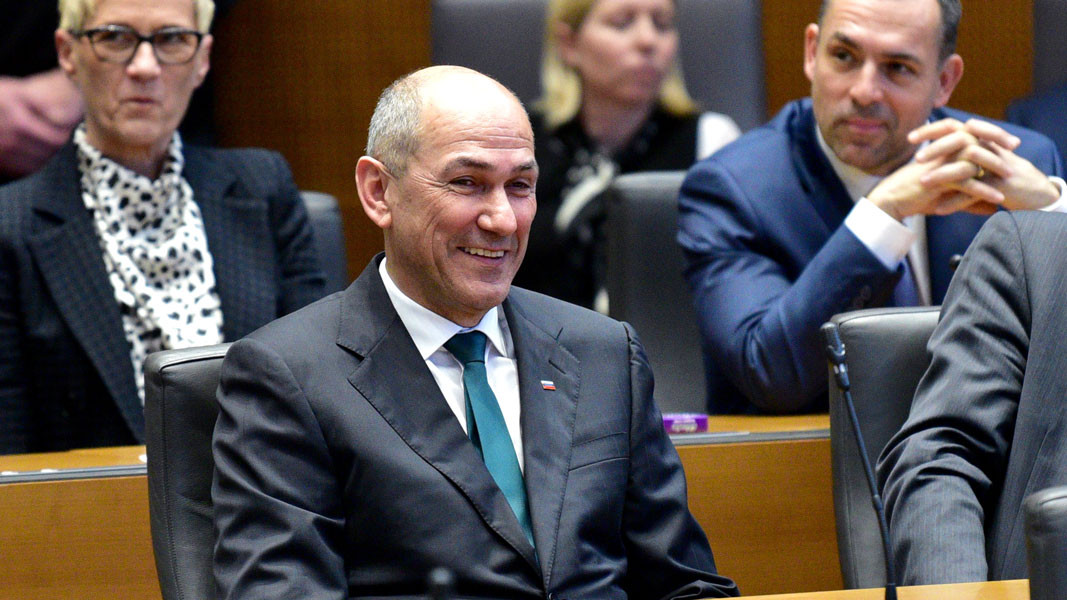North Macedonia expects a decision on negotiations with the EU in June

The Prime Minister of North Macedonia, Zoran Zaev, said that the EU's arguments were on Skopje's side, and the presence of a caretaker government in Bulgaria suggested that a decision would be made in June to start negotiations. "I definitely think that President Rumen Radev, who is a European leader, can take a positive step that will give a chance to our friendship," Zaev said in an interview with Macedonia's FOCUS news agency.
According to him, the Macedonian language and identity remain red lines.
Zaev also commented on the proposal of the opposition party VMRO - DPMNE to leave the Good Neighborhood Agreement with Bulgaria and to sign a new one with more international guarantees. According to him, it is not serious for the state to abandon a contract that it has already started to implement.
Serbia: Zeman's apology for the bombing goes down in history

Czech President Milos Zeman's apology for his country's involvement in the 1999 bombings is a historic event. This was stated by the President of Serbia, Aleksandar Vučić, at a press conference on May 25th, quoted by the Serbian state radio and television (RTS).
"Zeman's statement is a healing balm for the Serbian nation. That is how he entered the history of Serbia and the Serbian nation and will enter our history textbooks," Vucic said. The Serbian president noted that Zeman was the first acting president to make such an apology. "Our small nation was attacked by 19 foreign countries, which will always say that they undertook the bombings because of the humanitarian catastrophe, because of the children, and the bombings killed 72 children," Vucic said.
Zeman apologized for the 1999 NATO air strikes of former Yugoslavia and asked the Serbian people for forgiveness during President Vucic's visit to Prague.
Acts of hostility towards Bulgarians in Croatia in recent days

The Bulgarian ambassador to Zagreb, Genka Georgieva, has reported on three incidents of hostility towards Bulgarian citizens in Croatia in the last few days, Jutarnji list reported.
Croatian Prime Minister Andrej Plenkovic blamed President Zoran Milanovic for the incidents, who last week sharply criticized Bulgaria for delaying North Macedonia's EU accession talks. Plenković described Milanović's actions as "incitement". The statements of the affected Bulgarians state that the aggression against them was manifested after their interlocutors found out which country were from.
Major military exercises take place in the Black Sea region

Two major international military exercises have started in the Black Sea region since mid-May. NATO soldiers are taking part in them, BNR reported. Defender Europe 21 is the exercise that, since mid-May, has demonstrated the ability of the US Army Command for Europe and Africa to serve as a strategic security partner in the Balkans and the Black Sea.
Romania is hosting the third phase of the "Steadfast Defender 21" exercise, which will work out a situation for an attack on a pact party and the reaction of all other members of the Alliance.
Bulgaria is participating in both regional exercises, which will continue until mid-June. This is happening against the background of the request addressed to NATO and the United States by 9 countries (including Bulgaria) to strengthen NATO's eastern flank - from the Baltic to the Black Sea.
Slovenian Prime Minister Janez Jansa survives a no-confidence vote

Slovenia's Parliament has rejected with 42 "for" and 44 “against” the vote of no confidence in the country's conservative Prime Minister Janez Jansa, TASS reported. The vote was initiated by four centre-left opposition parties, which accused Jansa of failing to tackle the pandemic and the failure of the vaccination campaign, as well as putting pressure on the prosecution and the Slovenian Telegraph Agency - STA. In order for the vote to pass, it had to be supported by a minimum of 46 votes.
Compiled by Miglena Ivanova
English version Rositsa Petkova
Photos: EPA/BGNES and maxportal.hr
With 128 votes in favour, 56 against and six abstentions, the National Assembly elected Maria Filipova, the chair of the Consumer Protection Commission, as deputy ombudsman of the Republic of Bulgaria. She received support from MPs belonging to..
Deputy Prime Minister Atanas Zafirov's attendance at a military parade in China provoked a strong reaction from We Continue the Change-Democratic Bulgaria (PP-DB) , who submitted a declaration to the National Assembly. Speaking from the parliamentary..
The autumn session of the 51st Bulgarian National Assembly was opened with the anthems of the Republic of Bulgaria and the European Union, after which the parliamentary speaker Natalia Kiselova called on the deputies to be fully aware of the..

+359 2 9336 661
